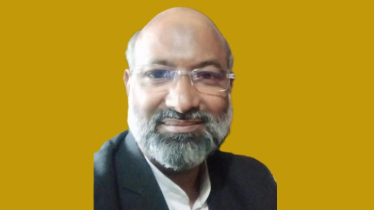
A significant portion of our population tends to believe that the ruling party or government alone bears the responsibility for the nation's progress. However, this perspective reflects a lack of civic awareness and creates obstacles to comprehensive national development. While a government or political party is vital for state administration, the active participation of citizens in fulfilling their duties is equally crucial.
Citizenship is not merely a status; it is a commitment to the welfare of the society and the state. This involves abiding by laws, paying taxes, and contributing responsibly to the community. Unfortunately, many people see their responsibility ending with casting a vote during elections. This mindset undermines the essential role citizens play in a nation’s growth.
 Citizens can significantly impact areas like environmental conservation, local problem-solving, and social welfare. For instance, communities can come together to address challenges in their neighborhoods, safeguard natural resources, and actively participate in education and poverty alleviation initiatives.
Citizens can significantly impact areas like environmental conservation, local problem-solving, and social welfare. For instance, communities can come together to address challenges in their neighborhoods, safeguard natural resources, and actively participate in education and poverty alleviation initiatives.
The educated youth, including university graduates, are often perceived as the future of a nation. Yet, many of them lack a sense of obligation or enthusiasm to contribute to society. This trend needs to change. Universities must focus on instilling not only professional skills but also values of ethics, leadership, and responsibility.
Young individuals can initiate social programs, engage in voluntary activities, and promote civic awareness among peers. Their active participation can catalyze significant transformations within society.
National development hinges on effective leadership and well-planned initiatives. Leadership must extend beyond the political sphere to include contributions from every segment of society. Long-term strategies should prioritize sustainable development in education, health, technology, and environmental protection. Simultaneously, fostering collective awareness among citizens is essential for meaningful progress.
A nation's growth should not rely solely on a single government’s tenure. Successive administrations must build upon the efforts of their predecessors, ensuring continuity and collaboration. Public-private partnerships can serve as a bridge to maintain the momentum of development. Furthermore, instilling a strong understanding of civic rights and responsibilities at all educational levels is vital for nurturing informed and active citizens.
To achieve sustainable development, a cohesive effort is required among political parties, administrative bodies, and citizens. Without the practice of responsibility at the individual, societal, and governmental levels, development efforts cannot be enduring. The future of the nation depends on the awareness and active participation of this generation, which must rise to the occasion and take the lead in shaping a brighter, more prosperous tomorrow.
U

.png)







